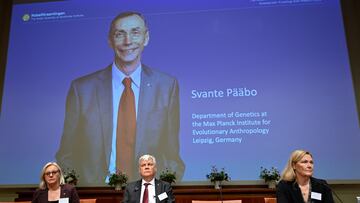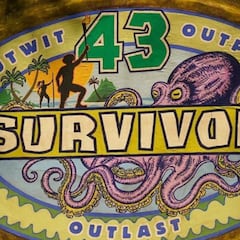Nobel Prize for medicine awarded to Svante Paabo for sequencing Neanderthal DNA
The prize was awarded to the Swedish geneticist for ground-breaking discoveries about the relationship between humans and our ancient ancestors.


Swedish geneticist Svante Paabo has won the Nobel Prize for medicine after sequencing the first Neanderthal genome, discovering that Homo sapiens appear to have interbred with Neanderthals.
The evidence was first uncovered in 2010 when Paabo utilised pioneering new methods to extract, sequence and analyse usable DNA from the bones of Neanderthals. This allowed scientists to compare the genetics of modern-day humans to ancient ancestors, who lived between 40,000 and 130,000 years ago.
In awarding the prize to Paablo, the Nobel Committee said that he had “accomplished something seemingly impossible.”
“Paabo’s seminal research gave rise to an entirely new scientific discipline; paleogenomics,” they said. “By revealing genetic differences that distinguish all living humans from extinct hominins, his discoveries provide the basis for exploring what makes us uniquely human.”
BREAKING NEWS:
— The Nobel Prize (@NobelPrize) October 3, 2022
The 2022 #NobelPrize in Physiology or Medicine has been awarded to Svante Pääbo “for his discoveries concerning the genomes of extinct hominins and human evolution.” pic.twitter.com/fGFYYnCO6J
A genome is the term for the entire set of DNA instructions which contains all the information needed for the cells to develop and function. Humans have genomes with 23 pairs of chromosomes in the cell’s nucleus, along with a small chromosome in the mitochondria.
Paabo was able to sequence the data from Neanderthal remains so analysts could make meaningful conclusions about the genetic relationship between modern-day humans and our ancient predecessors.
Who is Svante Paabo?
A prominent geneticist, Paabo has been the director of Leipzig’s Max Planck Institute for Evolutionary Anthropology since 1997. He is also an Honorary Research Fellow at London’s Natural History Museum and a specialist in genome analytics.
Chris Stringer, research lead in human evolution at the Natural History Museum, told CNN: “His major contribution is being a pioneer in recovering ancient DNA and that has been extremely important in the study of human evolution.”
Paabo is also credited with discovering a previously unknown type of human ancestor, known as the Denisovans. Their DNA lives on to this day due to historic interbreeding between the Denisovans and Homo sapiens.
Related stories
However Paabo’s Nobel Prize-winning discovery is ranked by Stringer as his most important breakthrough: “I think the Neanderthal genome was his biggest single contribution. It revealed that Neanderthals interbred with us.
“That was disputed for many years, including by me. But he showed that most of us have ancient DNA (from Neanderthals and or Denisovans). That DNA may also be medically important.”

